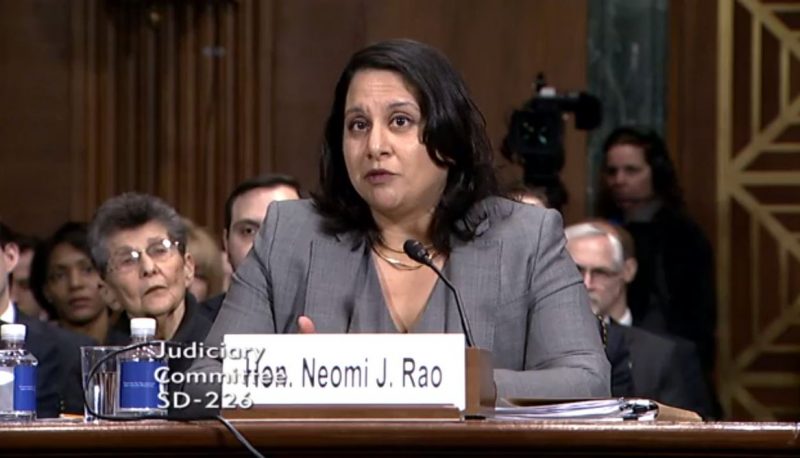“Confirmed Judges, Confirmed Fears” is a blog series documenting the harmful impact of President Trump’s judges on Americans’ rights and liberties. Cases in the series can be found by issue and by judge at this link.
Neomi Rao has once again tried to use her position on the D.C. Circuit to protect the interests of Donald Trump and block congressional efforts to hold him accountable. In November 2019, she joined with the court’s other Trump judge in dissenting from an order upholding congressional authority to subpoena Trump’s income tax records. This time, she tried to block the House Judiciary Committee’s exercise of its authority to see grand jury testimony and documents from the Mueller investigation that were not included in the final report. Her dissent is in the March case of In re Application of the Committee on the Judiciary, U.S. House of Representatives, for an Order Authorizing the Release of Certain Grand Jury Materials.
The majority opinion was authored by Judge Judith Rogers. Importantly, it was joined in full by Judge Thomas Griffith, a George W. Bush appointee who has announced his upcoming retirement, thereby creating a vacancy on the court.
As the majority explained, the case is straightforward. The House Judiciary Committee sought to obtain redacted grand jury testimony in connection with its impeachment investigation. Federal law generally prohibits disclosure of grand jury testimony and other documents, but there is an exception for a “judicial proceeding” when there is a “particularized need” for the material. The text of the Constitution sets an impeachment trial out as a judicial proceeding, and the founders’ writings confirm that is how they regarded it. In addition, the majority pointed out that federal courts have authorized the disclosure of grand jury materials to the House for use in impeachment investigations involving two presidents and three federal judges.
Judge Rao dissented, claiming that the Judiciary Committee does not have standing to press its claim in federal court as required under the Constitution. She cited a recent opinion by the court blocking a committee subpoena of White House Counsel Don McGahn. Judge Griffith, the author of that opinion (which the full D.C. Circuit has been asked to review), wrote a separate concurrence to the grand jury opinion specifically to rebut Rao’s argument and explain why his recent opinion is not relevant to the current case.
Rao relied on the fact that the grand jury records are currently in the possession of the Justice Department, part of the executive branch. If they had been in the possession of the court, then the court could choose to provide them to the Judiciary Committee. Purporting to rely on Griffith’s opinion in the McGahn case, she wrote that the court cannot force the executive branch to produce them to Congress.
Judge Griffith explained that Rao’s “argument elevates form over substance.”
But, as gatekeepers of grand jury information, we cannot sit this one out. The House isn’t seeking our help in eliciting executive-branch testimony or documents. Instead, it’s seeking access to grand jury records whose disclosure the district court, by both tradition and law, controls.
Griffith criticized Rao for “creat[ing] a novel distinction” between a court authorizing disclosure and a court ordering disclosure:
But that distinction is difficult to square with our precedent and the district court’s longstanding supervisory power over the grand jury.
This “novel distinction” is wholly a creation of Rao’s. As Judge Griffith pointed out, “neither party has advanced the dissent’s novel theory of that relationship.”
The Constitution specifically provides for impeachment as an essential component of the separation of powers upon which our democracy rests. Judge Rao would make it infinitely harder for Congress to have the information needed to carry out this power, which in turn would allow Trump to continue to act without accountability.
Especially since Senate Republicans have proven unwilling to subject President Trump to the rule of law, our nation relies increasingly on the federal courts as a guarantor of our democracy. That is why Republicans have made it a priority to fill vacancies with judges who they are confident will rule in favor of them and their powerful donors.
Judge Griffith will retire on September 1. We know that the White House and Senate Republicans will fight to put another Neomi Rao on the court. What they should know is that the American people are paying attention and will hold them accountable for the damage they are doing to our courts and our nation.

